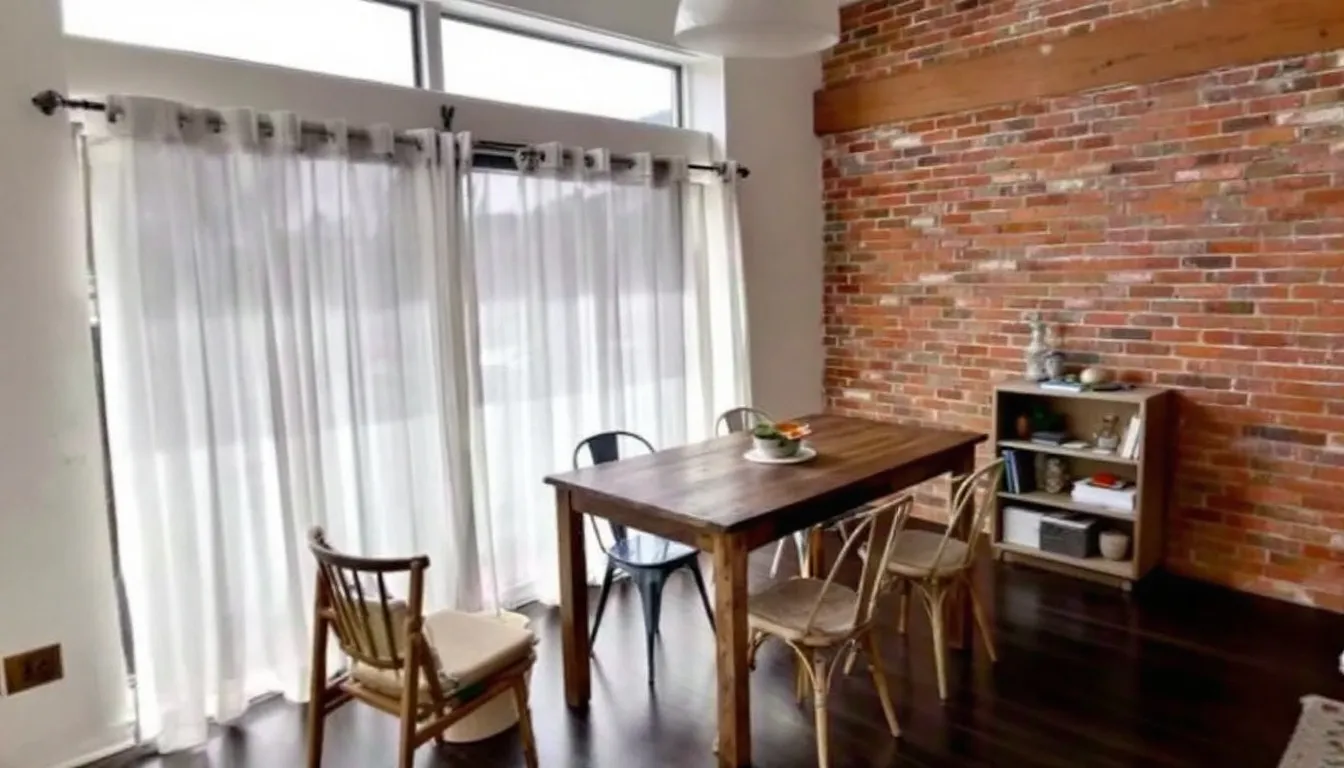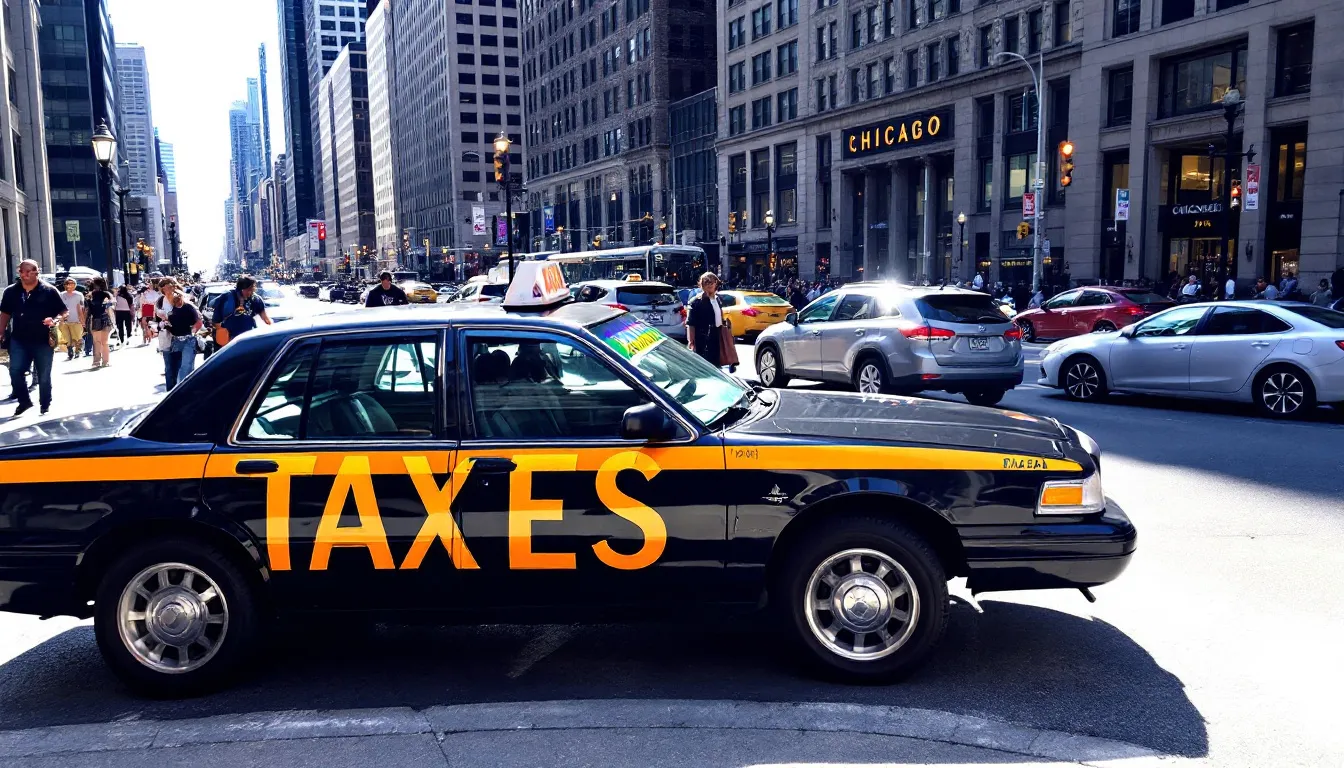If you’re an Airbnb host in Chicago, you need to know your taxes. From federal income taxes to local surcharges, knowing what taxes you need to pay can save you from trouble. In this article we’ll break down everything you need to know about Chicago Airbnb taxes.
Quick Facts
- Chicago Airbnb hosts must comply with federal, state and local taxes which include income taxes, hotel accommodation taxes and various local surcharges.
- Hosts must keep accurate records of their rental income and expenses and file annual tax returns with the Illinois Department of Revenue even if no income was generated.
- Failure to comply with tax obligations and regulations can result in big fines and penalties; so it’s recommended to consult a tax professional to navigate the complexities of Airbnb specific tax matters.
Chicago Airbnb Host Tax Obligations
Understanding your tax obligations is key to running a successful Airbnb business in Chicago. As an Airbnb host you must comply with federal, state and local tax regulations. The income you earn from Airbnb is considered rental income and is subject to various tax laws.
Compliance is key to avoiding legal issues and fines. The main components of your tax obligations include federal income taxes, state taxes in Illinois and local taxes in Chicago. Each level of taxation has its own set of rules and rates which we will break down below.
Federal Income Tax Requirements

Federal taxes can be complex and it’s important to stay informed about your obligations to avoid penalties. Consulting a tax professional can provide valuable guidance on how to report your rental income and take advantage of any deductions available to you.
State Taxes in Illinois
The state of Illinois has a flat income tax rate of 4.95% for all taxpayers including Airbnb hosts. Fulfilling your state tax obligations will avoid legal issues.
Airbnb hosts must register with the Illinois Department of Revenue to collect rental tax which is then added to the guest’s bill. Stay updated on any changes in tax laws to remain compliant.
Local Taxes in Chicago
Chicago imposes a total city tax rate of 10.5% on Airbnb rentals. This tax includes:
- Chicago Hotel Accommodation Tax – 4.5%
- Chicago Vacation Rental and Shared Housing Surcharge – 4%
- Domestic Violence Surcharge – 2%
Airbnb hosts must be aware of the various local taxes that apply to their listings. Note that tax rates can vary by county and city so it’s important to stay informed to avoid overcharging or undercharging your guests.
There are exemptions from short-term lodging taxes for long-term rentals and foreign diplomats. Understanding local short term rental tax obligations will ensure compliance and avoid potential fines or penalties.
Additional Chicago Taxes for Airbnb Hosts
Airbnb hosts in Chicago are also subject to other important taxes that impact their rental income. These include the Illinois Sports Facilities Hotel Tax and the Metropolitan Pier and Exposition Authority (MPEA) Hotel Tax.
- The Illinois Sports Facilities Hotel Tax is levied at a rate of 2.0% on the gross rental or leasing charge and supports sports facilities throughout the state.
- The Metropolitan Pier and Exposition Authority Hotel Tax is imposed at a rate of 2.5% and funds the operations of the McCormick Place convention center and Navy Pier in Chicago.
Collecting and Remitting Taxes
Collecting and remitting taxes is a big responsibility for Airbnb hosts in Chicago. Hosts must ensure they are collecting all applicable taxes including the Illinois Hotel Operators’ Occupation Tax, local lodging taxes, occupancy taxes and other specific taxes. Proper registration with the Illinois Department of Revenue is required for compliance.
Stay informed about tax laws and adjust your accounting practices accordingly to remain compliant.
Automated Tax Collection by Airbnb
Airbnb makes tax collection easy by automatically collecting local taxes from guests during the booking process for properties listed in Chicago. This automation ensures the correct amount of Airbnb taxes is collected without extra work from the host.
Manual Tax Collection Responsibilities
Although Airbnb automates tax collection, hosts are still responsible for manually collecting any taxes that are not automatically handled by Airbnb. Familiarize yourself with local tax regulations and clearly communicate any manually collected taxes to your guests during the booking process.
Accurate reporting and timely remittance of these taxes to pay according to local deadlines will avoid fines and penalties.
Filing Tax Returns
Filing tax returns requires a record of your Airbnb earnings and documentation for any deductions. Hosts should provide detailed information about rental charges when filing their tax returns. Even if no income was generated during the year, returns must still be filed with the Illinois Department of Revenue.
Annual tax filings are due on January 31 each year, and hosts can file their returns online. Consulting a tax professional can assist in ensuring accuracy and compliance with filing requirements.
Deductible Expenses for Chicago Airbnb Hosts
Understanding deductible expenses can significantly impact your overall tax liability as an Airbnb host in Chicago. Various expenses associated with hosting can be deducted to reduce your taxable income.
These deductions are crucial aspects for optimizing your tax returns and maintaining profitability.
Common Deductibles
Common deductible expenses for Chicago Airbnb hosts include:
- Cleaning fees
- Home insurance
- Property taxes
- Mortgage interest
- Utilities
Keeping detailed records of these expenses incurred is essential for maximizing your deductions.
Unique Deductibles for Chicago Hosts
Chicago hosts can claim expenses specific to compliance with local laws and safety standards. These unique deductions can reduce your taxable income further.
Record Keeping
Organized financial records are essential for compliance and maximizing your deductions. Poor record keeping can lead to accounting and tax errors so keep comprehensive files that include income statements, expense records and tax documents from Airbnb.
Tracking your income and expenses regularly simplifies the accounting process and ensures you can easily find information when needed. Keeping detailed records supports your deductible claims and protects against audits.
Consequences of Non-Compliance

Keeping detailed records and accurate accounting helps avoid these penalties by providing evidence and support for your claims or deductions.
Penalties
Non-compliance can lead to increasing fines especially for repeated violations of short-term rental rules. Hosts without valid insurance can face big financial penalties so make sure you meet all regulatory requirements.
Even if no income was earned, short-term rental operators must file returns.
Voluntary Disclosure Programs
A Voluntary Disclosure Agreement (VDA) can help mitigate penalties for previous non-compliance. This program allows hosts to come forward voluntarily and disclose any past tax liabilities, often resulting in reduced penalties.
Chicago Short Term Rental Rules
Chicago has established a comprehensive framework of rules and regulations that govern short-term rentals, including Airbnb listings. These rules are designed to balance the interests of property owners, guests, and the local community, ensuring safety, fairness, and compliance with city standards.
Registration and Licensing
All short-term rental operators in Chicago must register their properties with the City’s Business Affairs and Consumer Protection (BACP) department. This registration process includes getting the correct license which varies depending on the type of property and number of units rented. For example, hosts renting out single family homes as their primary residence must provide proof of residency while operators managing multiple units in larger buildings may have additional requirements.
Permit Application
The fee to apply for an Airbnb license in Chicago is $125 for a single unit and $250 for multiple units. Hosts must provide a government issued photo ID and proof of valid insurance to apply for the license.
To register a short-term rental hosts must meet safety standards and have their property inspected. Getting a permit includes meeting safety standards and potentially property inspected.
Occupancy and Use Restrictions
Chicago has occupancy limits to prevent overcrowding and preserve neighborhood quality of life. Typically the number of guests allowed is limited based on the size and type of the rental unit. There are also limits on the total number of nights a property can be rented out annually to preserve long-term housing.
Zoning and Location Restrictions
Zoning laws in Chicago restrict short-term rentals in certain neighborhoods and building types. For example, multi-unit buildings with fewer than 5 units often have restrictions on renting units as short-term rentals unless the host resides in the property. Some areas are designated as off-limits for vacation rental operations to protect residential stability.for vacation rental operations to protect residential stability.
Safety and Property Standards
Properties listed as short-term rentals must meet specific safety and health standards. This includes working smoke and carbon monoxide detectors, proper fire exits and building codes. The City may require inspections as part of the licensing process to ensure compliance with these standards.
Enforcement and Penalties
Failure to comply with Chicago’s short-term rental rules can result in fines, license revocation, and other penalties. The City actively monitors listings and investigates complaints to enforce these regulations, emphasizing the importance of adherence for all hosts.
By understanding and following these Chicago short-term rental rules, hosts can operate their Airbnb listings legally and successfully, contributing positively to the local community while maximizing their rental income.
Insurance Requirements for Chicago Airbnb Hosts
Insurance is a must for Chicago Airbnb hosts to protect their properties and business. Compliance with specific insurance requirements is necessary to mitigate risks and protect against guest or third party claims.
Airbnb hosts should consider additional insurance coverage to cover risks not covered by mandatory liability insurance. This can include options like property damage protection which covers damages caused by guests.
Mandatory Liability Insurance
Chicago Airbnb hosts are required to carry a minimum of €1,000,000 in liability insurance. This mandatory coverage is crucial for mitigating risks and protecting against potential claims from guests or third parties.
Optional Insurance Coverage
In addition to mandatory liability insurance, hosts in Chicago have various optional insurance options available that can offer extra protection against unique risks associated with short-term rentals. These can include guest damage protection and specialized packages tailored for short-term rental hosts.
Tax Season
Preparing for tax season is key for Airbnb hosts to ensure accurate reporting and compliance. Key points to consider:
- Income from Airbnb rentals must be reported on federal tax returns if rented for more than 14 days a year.
- Organizing financial records is crucial for a smooth tax season.
- Proper organization simplifies the process and ensures all necessary information is readily available.
Documenting all financial transactions including rental income, cleaning fees, maintenance costs and guest supplies is vital for tax preparation.
Gathering Financial Documents
Organizing records by categorizing each booking, analyzing revenue streams, and tracking trends is essential for effective management of Airbnb income. Hosts should create separate folders for each year and subfolders for income, expenses, and tax documents to maintain their financial records efficiently.
To protect their financial records, hosts should use cloud storage or external hard drives for secure storage and regularly back up their data. Documenting income, Airbnb fees, maintenance costs, utility bills, cleaning fees, and other related expenses simplifies accounting and ensures compliance.
The Airbnb Tax Strategy
Minimizing Income Taxes with an Airbnb
Successfully minimizing income taxes as an Airbnb host involves strategic planning and a thorough understanding of applicable tax laws. Hosts can take advantage of numerous deductions and credits available specifically for rental properties, which can significantly reduce taxable income.
One way to minimize taxes is to track and categorize all expenses related to your Airbnb operation. This includes cleaning fees, maintenance and repairs, utilities, property taxes, mortgage interest, insurance premiums and even supplies provided to guests. By keeping detailed records you can ensure these expenses are deducted when you file your tax returns.
Understanding the difference between personal use and rental use of a property is also key as it affects the deductibility of expenses. If the property is used for both personal and rental purposes expenses must be prorated.
Using tax software or consulting with a tax professional experienced in Airbnb and short-term rental tax can help hosts identify all eligible deductions and credits. This guidance is invaluable for maximizing tax benefits and compliance.
Moreover hosts should stay informed about changes in tax laws and regulations that may impact their tax situation. Reviewing tax strategies and adjusting as needed can help optimize tax outcomes year after year.
By managing income and expenses proactively, leveraging available deductions and seeking expert advice Airbnb hosts can minimize their income tax liability while being in compliance with tax authorities.
Airbnb Tax Losses and the Short Term Rental Loophole
Many Airbnb hosts in Chicago may have opportunities to reduce their taxable income through legitimate tax strategies including leveraging losses from their short-term rental activities. One commonly discussed approach is the short-term rental loophole which can allow hosts to offset short term rental losses against other income potentially lowering overall tax liability.
The short-term rental loophole often hinges on the classification of the rental activity for tax purposes. If a host can demonstrate that their Airbnb operation is a business rather than a passive investment they may be able to deduct losses more broadly. This classification depends on factors such as the number of rental days, the level of host involvement and whether the property is rented for short-term periods.
Hosts who actively manage their short-term rental, including providing substantial services to guests, may qualify as running a business under IRS rules. This can open the door to deducting losses against other sources of income, such as wages or business profits, rather than being limited to passive activity loss rules.
However, it’s important to note that the IRS has specific guidelines on what qualifies as a short-term rental business and the associated deductions. For example, the property must be rented for less than 30 days at a time, and the host must materially participate in the rental activity. Failure to meet these criteria may restrict loss deductions.
Also, hosts should be aware of potential limitations such as the passive activity loss rules and the at-risk rules which can limit the amount of loss that can be deducted in a given year. These rules are designed to prevent taxpayers from using rental losses to offset unrelated income without real economic risk.
Because tax laws are complex and subject to change it is highly recommended that Airbnb hosts consult with a qualified tax professional to determine eligibility for loss deductions and to ensure compliance with all applicable regulations. Proper documentation of rental activities, income, expenses and host involvement is essential to support any claims made on tax returns.
By understanding and utilizing the short-term rental loophole properly Chicago Airbnb hosts can optimize their tax position, reduce taxable income and improve the financial viability of their rental business.
Cost Segregation for the Airbnb
Cost segregation is a tax planning tool that allows Airbnb hosts to accelerate depreciation deductions by separating the costs of various components of a rental property. Instead of depreciating the entire property over the standard 27.5 years for residential rental real estate hosts can identify and classify certain parts of the property—such as appliances, carpeting, landscaping and improvements—with shorter depreciation schedules. This can reduce taxable income in the early years of property ownership and improve cash flow for hosts.
Implementing cost segregation requires a detailed engineering-based study to properly allocate costs to the correct asset categories. While this may involve upfront costs for professional analysis the potential tax savings often outweigh these expenses. Hosts should consult with a qualified tax professional or cost segregation specialist to determine if this strategy is suitable for their Airbnb property and to ensure compliance with IRS guidelines.
By using cost segregation Airbnb hosts in Chicago can maximize their tax benefits, reduce their overall tax liability and reinvest savings into their rental properties or their hosting business.
Airbnb and Self Employment Tax
In addition to federal income tax, Airbnb hosts may also be subject to self-employment tax if they provide substantial services to their guests. The IRS distinguishes between rental income and income earned from a business based on the level of involvement and services provided by the host. If you actively manage your Airbnb rental and offer services beyond simply providing lodging—such as daily cleaning, concierge services, or meals—you might be classified as self-employed.
Self-employment tax covers Social Security and Medicare taxes for individuals who work for themselves. For Airbnb hosts who qualify, this tax is calculated on the net earnings from their rental business. It is important to understand whether your Airbnb activity meets the criteria for self-employment tax, as it can significantly impact your overall tax liability.
To determine your status consider the frequency of rentals, the extent of services offered and the degree of personal involvement in the rental operation. Consulting a tax professional can help clarify your situation and ensure proper tax treatment.
Properly accounting for self-employment tax is essential to avoid underpayment penalties and to plan for quarterly estimated tax payments if required. Keeping detailed records of income and expenses related to any services provided will also support your tax filings.
Understanding Airbnb and self-employment tax helps hosts comply with tax laws and optimize their financial outcomes while operating their rental business in Chicago.
Consulting a Tax Professional
Consulting a tax professional is essential for Airbnb hosts to ensure compliance with tax laws. Working with a tax professional provides:
- Guidance on navigating the complexities of tax codes related to Airbnb
- Expertise in Airbnb-specific tax matters
- Assistance in taking advantage of available deductions
- Assurance of compliance with tax laws
As your rental property portfolio grows and accounting complexity increases, consider renting a professional accountant for expert advice to maximize your tax savings and rent your property effectively.
Conclusion
In summary understanding and complying with the various tax obligations is key for Chicago Airbnb hosts. From federal, state and local taxes to specific tax rates and fees hosts must stay informed and diligent in their tax practices. Properly collecting and remitting taxes, claiming deductible expenses and maintaining accurate records are essential to stay compliant and profitable.
By navigating zoning laws and obtaining necessary permits and insurance coverage hosts can protect their investments and have a successful Airbnb business. Consulting a tax professional can help manage these complexities and maximize tax savings. Stay informed, stay compliant and enjoy hosting in Chicago.
Frequently Asked Questions
What is the total city tax rate for Airbnb rentals in Chicago?
The total city tax rate for Airbnb rentals in Chicago is 10.5%, encompassing multiple local taxes and surcharges.
What is the shared housing surcharge in Chicago?
The shared housing surcharge in Chicago is 4% of the rental price. This fee is applicable to rental arrangements classified as shared housing.
Are Airbnb hosts required to file tax returns even if no income was generated?
Yes, Airbnb hosts in Illinois must file tax returns regardless of income generated during the year. It is important to stay compliant with local tax regulations.
What are some common deductible expenses for Chicago Airbnb hosts?
Common deductible expenses for Chicago Airbnb hosts are cleaning fees, home insurance, property taxes, mortgage interest, and utilities. Tracking these expenses can help maximize your tax benefits.
What is the minimum liability insurance coverage required for Airbnb hosts in Chicago?
Airbnb hosts in Chicago are required to have a minimum liability insurance coverage of $1,000,000. This ensures protection for both hosts and guests during their stay.
____________________________
For more information about the tax and accounting services we provide, visit our Home Page! The friendly CPAs, Enrolled Agents, accounting and tax professionals, and bookkeepers and accountants at Massey and Company CPA are here to assist you.
If you want my team and I to handle your tax matter for you, click here.
You are welcome to email me directly at gary.massey@masseyandcompanyCPA.com.
Massey and Company CPA is a boutique tax and accounting firm serving individuals and small businesses in Atlanta, Chicago and throughout the country. Our services include tax return preparation, tax planning for businesses and individuals, estates and trusts, IRS tax problem resolution, IRS audits, sales taxes and small business accounting and bookkeeping.




